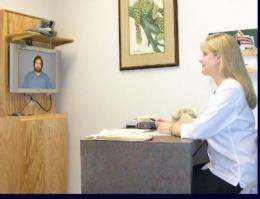Strong leadership necessary to provide more sophisticated care for aging population, study finds

Strong leadership, communication and teamwork are essential to successful organizations, especially health care facilities. However, how those organizations achieve improvement is not clearly understood, says a University of Missouri researcher. Amy Vogelsmeier, assistant professor in the Sinclair School of Nursing, found that leadership is critical to supporting open communication and relationship building to generate improvement, such as enhanced safety practices and new technology adoption, in health care organizations.
The Patient Protection and Affordable Care Act and the American Recovery and Reinvestment Act include mandates and incentives to promote the use of new technology in health care. As the aging population increases, the effective use of resources and care practices is essential to enacting health care reform and ensuring patients receive quality care.
"Although technology plays a role in improving resident safety, technology alone isn't the answer," Vogelsmeier said. "The reality is that implementation is much more complicated than people realize. It's not just a bring it in and turn it on kind of thing; it will take strong leadership within organizations to implement technological systems in ways that will enhance patient safety rather than hinder it."
Current challenges for health care providers and facilities include helping patients transition to nursing homes and long-term care, managing chronic illnesses, such as diabetes and heart disease, and coordinating care from different sectors, including hospitals, community clinics and specialists.
"Not only are the numbers in health care facilities increasing, but the complexities of residents' conditions also are increasing as well," Vogelsmeier said. "We need more sophisticated ways to take care of the aging population. Strong leadership is necessary for all organizations to move toward growth and improvement."
Vogelsmeier analyzed data from an intervention study of nursing homes that implemented electronic medication systems and focused quality improvement efforts to enhance medication safety practices. Vogelsmeier compared how nurse leaders from the highest- and lowest-performing nursing homes differed in their communication and teamwork strategies.
The nurse leader from the highest-performing nursing home encouraged team members to share their perspectives and ideas for solving problems. Leaders provided accurate and timely feedback, which motivated team members to work together and establish common goals. As input and feedback occurred, improvement in the nursing home occurred. The nurse leader from the lowest-performing home did not value the team's opinions, resulting in disengagement and lack of improvement in the nursing home.

















